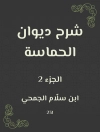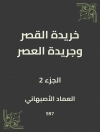In ‘My Rubaiyat, ‘ Sadakichi Hartmann presents a captivating reinterpretation of the classic Persian poetry of Omar Khayyam. Through his free-verse adaptation, Hartmann marries Eastern elegy with Western modernity, crafting a lyrical tapestry that contemplates the nature of existence, love, and the passage of time. His style is characterized by rich imagery and philosophical musings, making the text both a personal expression and a broader meditation on life’s impermanence. Set against the backdrop of the late 19th and early 20th centuries, this work reflects the burgeoning interest in Eastern literature among Western audiences and the emerging symbolic forms of poetic expression of that era. Sadakichi Hartmann, an influential figure in the American avant-garde movement, was a polymath whose diverse background included Japanese ancestry and extensive travel. His unique perspective and early exposure to various cultures significantly influenced his writing. Hartmann’s engagement with art, poetry, and philosophy led him to seek deeper meanings in Khayyam’s verses, prompting him to transcend mere translation and create an original work that speaks to contemporary sensibilities. Readers seeking to explore the intersections between Eastern and Western thought will find ‘My Rubaiyat’ a profound and enriching experience. Hartmann’s masterful blend of poetic form and philosophical insight invites contemplation and reflection, making it an essential read for lovers of poetry and those curious about the timeless questions of existence.
A propos de l’auteur
Sadakichi Hartmann (1867-1944) was a prolific writer, poet, art critic, and playwright whose work often fused Eastern and Western aesthetic principles. He was born to a German father and a Japanese mother, growing up between the two cultures, a formative experience that influenced his eclectic literary style. Hartmann’s bohemian lifestyle and avant-garde works placed him at the heart of the American literary scene at the turn of the century. His writings show an experimental approach, often blending poetry, drama, and criticism. Hartmann ventured into American adaptations of Japanese forms of poetry, and his collection ‘My Rubaiyat’ reflects his penchant for spiritual and sensual themes, drawing inspiration from the Persian poet Omar Khayyam’s ‘Rubaiyat’. A contemporary of Walt Whitman and influence on the Imagists, Hartmann’s works resonate with a symbolist verve and a modernist’s search for new forms of expression. Despite a fluctuating reputation posthumously, scholars have recognized Hartmann’s contribution to bridging the gap between Eastern and Western artistic expressions, finding value in his efforts to traverse cultures through literature.












